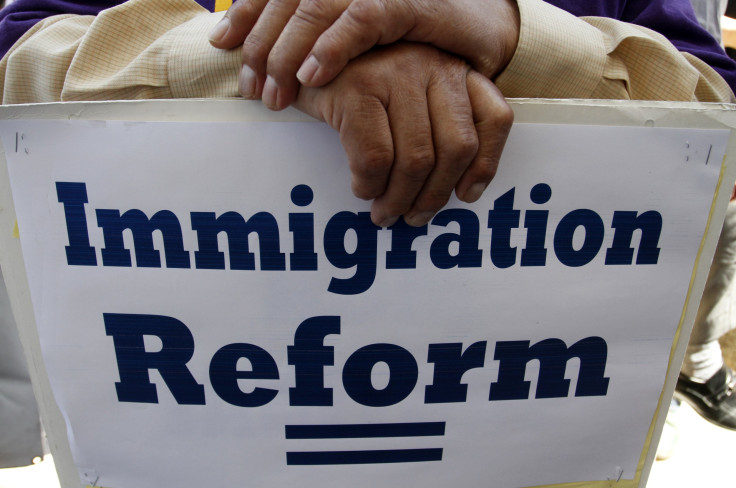
The Associated Press reported on Monday that two Republican leaders in the House of Representatives are hoping to introduce a series of immigration reform bills to the House floor by late October. The bills, which have already passed their committees, seek to ramp up border enforcement, expand visas for high-skilled workers and boost internal enforcement of immigration laws. But while Rep. Bob Goodlatte (R-Va.) - the chairman of the House Judiciary Committee - and Rep. Mike McCaul (R-Texas), who heads the House Homeland Security Committee, say they want to deal with those conservative-oriented bills before the end of the month, other leaders in their party show less eagerness in considering the issue.
A spokesman for Eric Cantor, the House Majority Leader and Republican from Virginia, told the AP that moving forward on immigration reform "remains a priority" but added that "right now there's no firm timetable". And the bills which Goodlatte seeks to bring up first don't address the question which Democrats consider to be at the heart of immigration reform: what sort of legal status to extend to the estimated 11 million undocumented immigrants living in the United States. Cantor and Goodlatte are planning to sponsor a bill which would partially address the question by making some undocumented immigrants brought to the US as children eligible for citizenship.
The "Kids Act", however, would offer nothing to anyone who entered the US illegally as adults. Even as it stands, support for it among the House's Republican majority is questionable, as is anything which might offer what they see as "amnesty". Another piece of legislation being worked on by Reps. Raul Labrador (R-Idaho) and Ted Poe (R-Texas) might be of less immediate appeal for much of their party's representatives: a new visa program to grant work authorization to more low-skilled workers from abroad.
House Speaker John Boehner (R-Ohio) has refused to bring to the floor a comprehensive immigration reform bill written and passed by the Senate, saying his party's majority would take a "piecemeal" approach to the issue. With Syria and the debt ceiling occupying much of the House's attention, talk has been circulating that immigration reform is dead in 2013. But Democrats have struck back. The chamber's minority leader, Nancy Pelosi (D-Calif.), will reportedly introduce legislation which would pair the Senate's bill with an April bill from the House on border enforcement - while stripping the Senate's bill of its "border surge" amendment that put some $46 billion toward surveillance, fencing and additional Border Patrol members. And Rep. Raul Grijalva (D-Ariz.), co-chairman of the Congressional Border Caucus, introduced his own idea of immigration reform this week which would increase the number of Customs and Border Protection by 5,000 and offer an 11-year path to citizenship to undocumented immigrants. "Is our bill going to become law? I doubt it," Grijalva told USA Today last week. "But we need a flag that we can rally around. We need to show the American people what a reasonable bill looks like."
RELATED: Border Patrol Settles Racial Profiling Case With Immigrant Advocate Group In Washington, Agrees To Release Records
© 2025 Latin Times. All rights reserved. Do not reproduce without permission.




